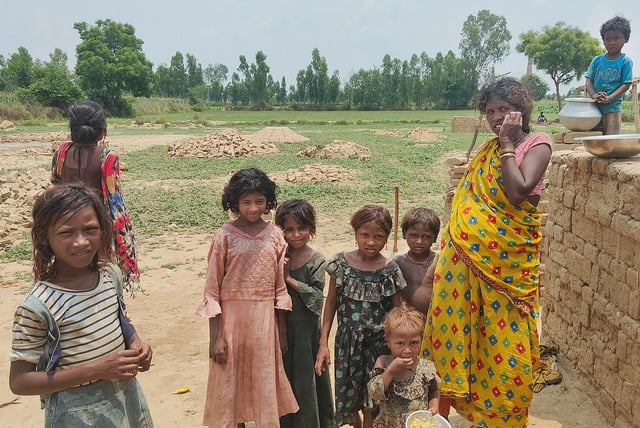Overview
- As of July 2025, families migrate eight to nine months to kilns in Aligarh and Bulandshahr, with intermediaries claiming 25% of daily earnings and leaving households about ₹400 per day.
- Children undertake ‘lighter tasks’ like fetching water and molding bricks yet exhibit frailty and widespread malnutrition without on-site healthcare.
- Despite the Right to Education Act and Poshan Tracker, lack of Aadhaar and permanent addresses prevents migrant children from enrolling in schools or anganwadis.
- Brick kiln owners deny hiring children, insisting they merely accompany parents, while activists from Just Rights for Children and the National Campaign Committee document pervasive hidden child labour.
- Seasonal migration and weak oversight allow debt bondage to persist, reinforcing a cycle of generational poverty among kiln worker communities.
